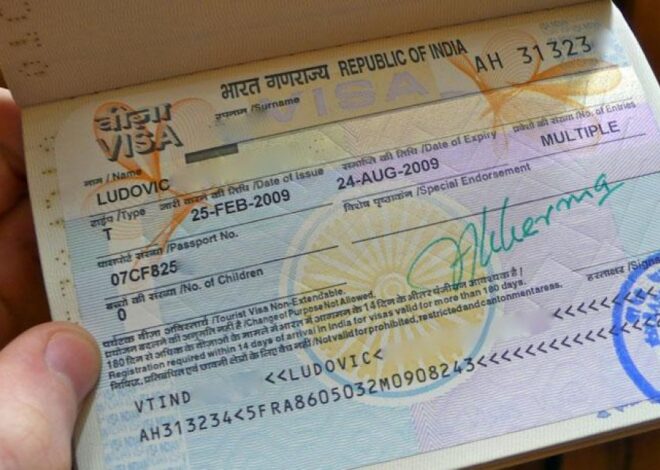
Common Mistakes to Avoid When Recruiting Engineers
Recruiting engineers can be a challenging process, especially in today’s competitive job market. The demand for skilled engineers is higher than ever, making it crucial for recruitment agencies and hiring managers to avoid common mistakes that can turn potential hires away. As the #1 Recruitment Agency In Pakistan, we understand the complexities involved in attracting top engineering talent and the importance of refining the hiring process to secure the best candidates. In this blog, we will discuss four critical mistakes to avoid when recruiting engineers.
1. Not Understanding the Specific Technical Skills Needed
One of the most significant mistakes companies make when recruiting engineers is failing to understand the specific technical skills required for the role. Engineers have diverse specialties, and not all engineers fit every job. Whether you’re hiring a software developer, mechanical engineer, or civil engineer, each role requires unique skills and expertise.
What Not to Do:
- Vague Job Descriptions:
Avoid using broad or unclear job descriptions that don’t outline specific skills and qualifications. - Ignoring Niche Skills:
Overlooking specialized skills can lead to hiring someone unqualified for the position. - Assuming All Engineers Are the Same:
Don’t assume that an engineer from one discipline can seamlessly fit into another.
What to Do Instead:
- Define Clear Job Requirements:
List out specific skills, programming languages, tools, and experience levels needed. - Collaborate with Technical Teams:
Work closely with existing engineering teams to understand what skills are essential for the role. - Include Technical Assessments:
Use technical assessments or coding challenges to screen for the necessary skills.
2. Neglecting Company Culture Fit
A critical aspect often overlooked during the recruitment process is ensuring the candidate fits the company culture. While technical skills are essential, cultural fit can significantly impact a new hire’s success and longevity within the company.
What Not to Do:
- Focusing Solely on Skills:
Don’t focus only on the candidate’s technical abilities while ignoring their alignment with company values. - Skipping Behavioral Interviews:
Neglecting to conduct behavioral interviews can result in hiring someone who may struggle to adapt to your company environment. - Hiring in a Hurry:
Rushed hiring decisions often overlook cultural fit, leading to mismatched expectations.
What to Do Instead:
- Incorporate Culture Fit Questions:
Include questions in the interview process that gauge the candidate’s values, work style, and adaptability. - Introduce Team Members:
Allow candidates to meet potential teammates to assess chemistry and alignment. - Assess Soft Skills:
Evaluate communication, teamwork, and problem-solving skills, which are crucial for cultural fit.
3. Offering Non-Competitive Compensation Packages
Compensation is a major deciding factor for engineers considering a job offer. If your compensation package is not competitive with industry standards, you risk losing top talent to other companies offering better pay and benefits.
What Not to Do:
- Lowballing Salary Offers:
Offering below-market salaries can deter talented engineers from accepting your offer. - Outdated Benefits Packages:
Benefits that do not cater to modern needs, such as flexible work hours or remote options, can make your offer less attractive. - Ignoring Market Trends:
Failing to stay updated with current salary benchmarks for engineers in your industry can lead to unattractive offers.
What to Do Instead:
- Conduct Market Research:
Regularly research industry compensation trends to ensure your offers are competitive. - Highlight Non-Monetary Benefits:
Emphasize benefits like remote work options, professional development opportunities, and work-life balance. - Offer Performance-Based Incentives:
Provide bonuses or stock options to attract high-performing engineers.
4. Overcomplicating the Hiring Process
A lengthy and overly complicated hiring process can turn away qualified candidates. Engineers often receive multiple job offers, and a prolonged hiring process can cause them to lose interest or accept another offer.
What Not to Do:
- Excessive Interview Rounds:
Avoid conducting too many rounds of interviews, which can frustrate candidates. - Delayed Decision-Making:
Prolonged delays in decision-making can lead to losing top candidates to faster-moving competitors. - Complicated Application Processes:
Overly complex application processes can discourage talented engineers from applying.
What to Do Instead:
- Streamline the Interview Process:
Limit the number of interview rounds and ensure they are efficient and purposeful. - Set Clear Timelines:
Communicate expected timelines for each step of the process to keep candidates informed. - Simplify Applications:
Make the application process straightforward with easy-to-follow steps and minimal paperwork.
Conclusion
Recruiting engineers is a nuanced process that requires attention to both technical and interpersonal factors. By avoiding the common pitfalls outlined above—such as unclear job descriptions, overlooking culture fit, offering non-competitive compensation, and overcomplicating the hiring process—you can improve your chances of attracting and retaining top engineering talent. Remember, a thoughtful and well-organized recruitment strategy not only fills positions but also strengthens your company’s reputation as a desirable place to work.


